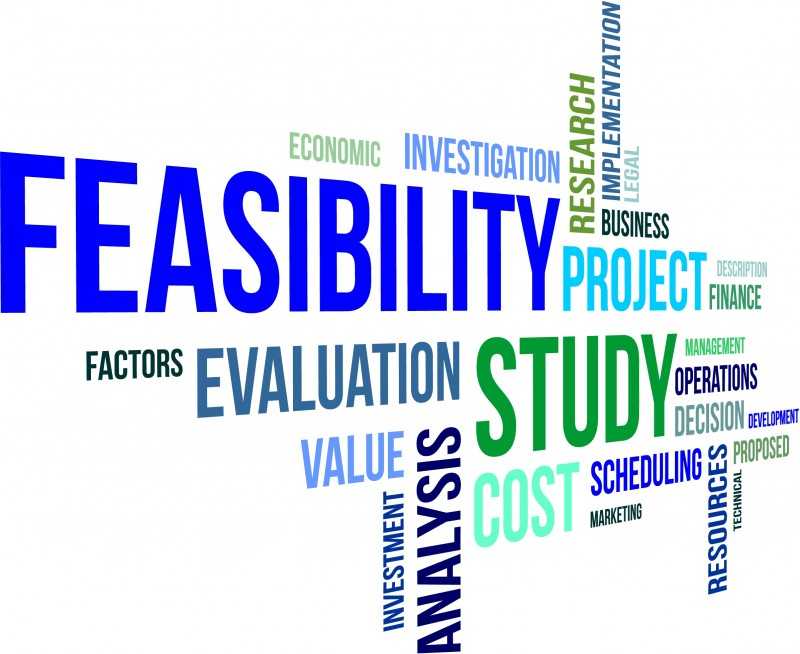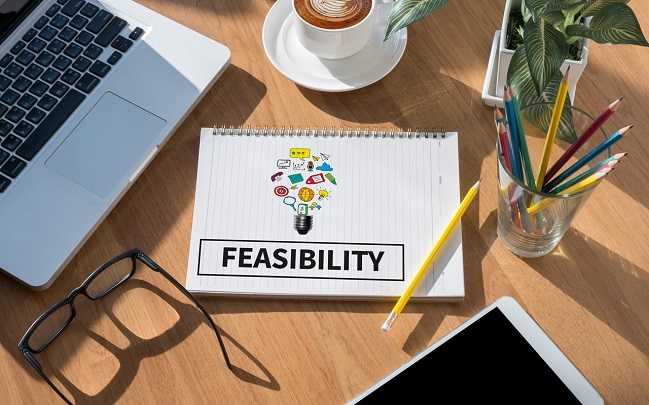How To Effectively Carry Out Feasibility Study

There are many ways that you can use feasibility studies, most people are aware of the importance of feasibility studies in a business venture, hence you will see its applications in the evaluation of potential business ventures.
It is very important for farmers as well as others with a business idea to run a feasibility study, this will help them to determine the viability of their idea as they move forward with the development of the business.

Important Key Points of a Feasibility Study
A solid feasibility study usually evaluates the following areas:
#1. Technical capability
It will help you to answer the question “is the organization equipped with the necessary technical resources to carry out the project?”
#2. Budget
Another important question that your feasibility studies must address is “is the organization's financial resources sufficient to carry out the project, and is the cost/benefit analysis sufficient to justify moving forward?”
#3. Legality
It will help to find out what the project's legal requirements are and if the company meets them.
#4. Risk
What are the common risks of embarking on the project? Is the risk worth it to the company in terms of the perceived benefits?
#5. Operational feasibility
You must also find out if the project, in its proposed scope can meet the needs of the organization by resolving problems and/or capitalizing on identified opportunities.
#6. Time
You will need to find out if it is possible to complete the project within a specified period.
The 4 Elements of a Feasibility Analysis
To carry out a successful feasibility study you have to include the following four major components:
#1. Technical feasibility
A technical feasibility study will help you to determine whether you have the necessary equipment, sufficient equipment, and technical knowledge to complete your project objectives.
A good example will be if your project plan needs to produce 50,000 products per month but your factories can only produce about 30,000, the project will practically not be technically feasible.
#2. Financial feasibility
Every financial feasibility report must contain the cost/benefit analysis of the project.
It will help you to know beforehand an expected return on investment (ROI) and also you will be able to identify any financial risks.
#3. Market feasibility
The main purpose of the market feasibility study is to assess how your team anticipates the project's deliverables will perform in the market.
#4. Operational feasibility
If you want to know whether your organization is capable of completing this project, then need to carry out an effective operational feasibility study.
The operational feasibility study contains the following: staffing, organizational structure, and any applicable legal requirements.
6 Steps to Quickly Conduct a Feasibility Study
As you are fully aware, the goal of a feasibility study is to help you to adjust the scope of the proposed enterprise based on project constraints such as budgeting, scheduling, and risk issues.
To successfully carry out a feasibility study, you need to follow these steps:
1. Choose the feasibility of the project.
When you have an idea roughly in your mind for a project, it is best to first undertake a preliminary analysis to find out if what you want to accomplish is achievable.
You need to ask yourself “Would people want the product or service?”
Would people be interested in your product or service?
Don’t understand the fact that this early stage of your feasibility study may encounter roadblocks that appear to halt the project.
You should also note that even though you may experience these roadblocks, it shouldn’t make you give up.
2. Draft an initial outline of the project in question.
Immediately you have a basic understanding of what your project may require, the next step is to investigate its parameters.
This will help you to find out if you can complete everything within the time frame you've set.
In addition, you need to take any form of legal issues before work begins.
3. Find out the project’s economic viability.
To find out if a project is economically viable, you must consider whether it will provide adequate value that will justify its cost.
You also need to find out the kind of revenue that you anticipate the project will generate, as well as how much do you estimate it will cost to complete the project.
4. Carry out adequate relevant market research.
Don’t fall in love with your project idea because a good project idea can still fall flat and fail if you don’t carry out adequate market research.
It doesn’t matter how you go about conducting the research, you can hire an outside firm or use your own staff and time; the baseline is that you must carry out the necessary research to fully understand your market and the demographic you're after.
You will be able to build a buyer's persona which will guide you in carrying out important project decisions as well as understand some aspects of your potential customers, especially their consumer behaviors, and what drives or turns them off.
5. Put in Place an organizational and operational structure.
Setting up an organizational structure as well as the operational structure is very important, this is because it will help you to properly put the operation as well as startup costs, fixed investments, and operational costs in their proper use.
6. Make the final decision.
When you have the data and insights, you can now analyze them to determine whether the project is feasible as well as whether it aligns with your company's strategy.
You will also need to find out if the project is worth your time, effort, and money.
Now you can use the above steps to carry out feasibility studies on your current or next projects.
Author Bio
For over 4 years, Saalim has worked as a branding, digital marketing, and SEO expert. He has been assisting with website design, SEO strategy, content marketing, and user experience improvements. He publishes on a variety of topics and is a contributing writer to a number of high-quality blogs and websites.
Article Comments
No Comments!
At present there are zero comments on this article.
Why not be the first to make a comment?
Similar Articles
Sponsor
Search Articles
Experts Column
Latest Articles
Featured Articles
Most Popular Articles












